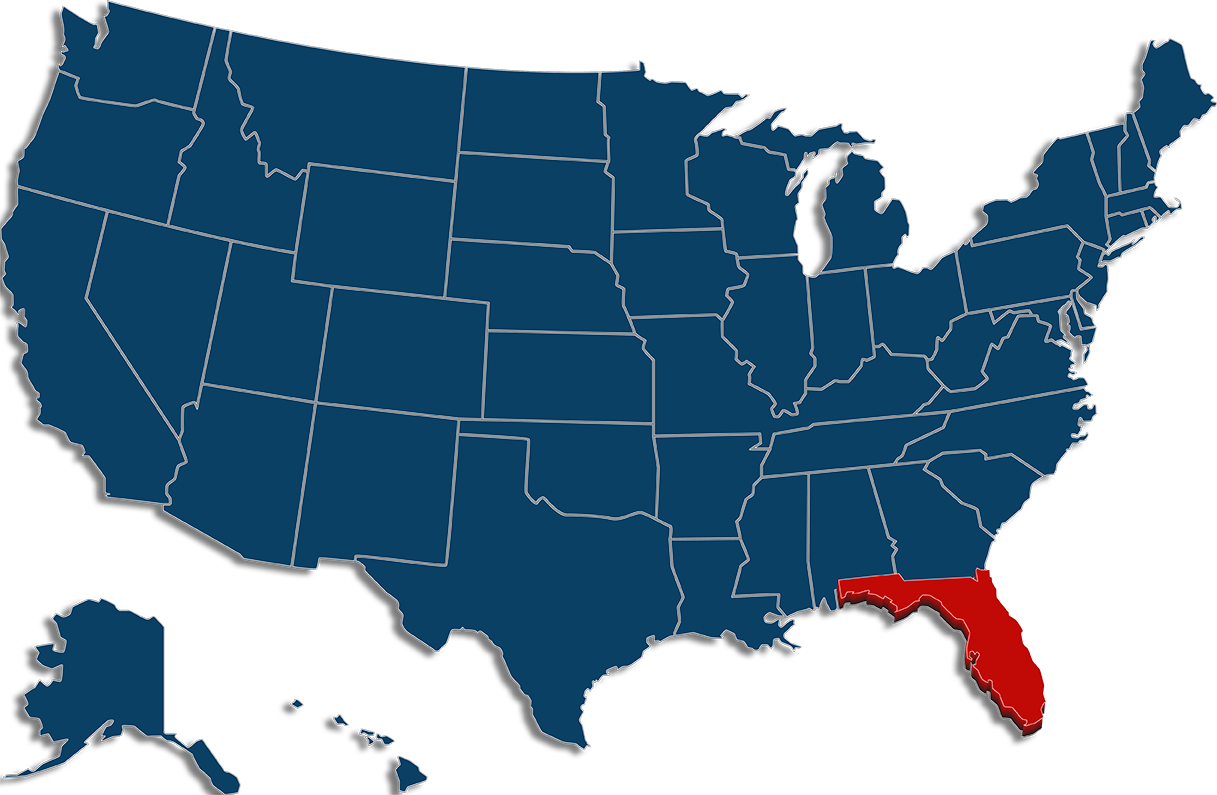All About Learning Press is a cherished resource among homeschoolers, and we’re always happy to help parents and teachers get started. One of the trickiest obstacles potential homeschoolers face is understanding the laws and regulations around homeschooling. You’ll be happy to hear that the process in Florida is relatively straightforward and pretty easy to navigate.

Main Points
In this article, we’ll give you an overview of what you need to know about homeschooling in Florida, from getting started to complying with the state’s laws. When you’re ready to dive deeper, we recommend checking out the Home School Legal Defense Association’s page for homeschooling in Florida, which offers forms, evaluations, and in-depth information.
How to Comply with Florida’s Homeschool Law (HSLDA)

How Do I Start Homeschooling in Florida?
Starting the homeschooling journey in Florida is simple, but you’ll need to understand the legal framework before you get started. You’ll need to notify the superintendent of the school district and follow specific guidelines, which will vary based on whether you choose a traditional homeschooling method or enroll in a homeschool program.
The first step is to file a Notice of Intent with the school district where you reside. This notice should include basic information about the child, the parent’s name, and the intended educational plan. This is typically done through the district’s website or a written letter. After that, you’ll need to choose whether you want to homeschool under the homeschool statute, homeschool under a private school “umbrella” program, or homeschool with a private tutor.
Homeschooling Under the Homeschool Statute: Parents directly oversee their child’s education, submitting an intent to homeschool to the county and maintaining required records. There is minimal government oversight, and parents have full control over the curriculum.
Homeschooling Under a Private School Umbrella Program: Parents enroll their child in a private school umbrella, which handles administrative tasks, record-keeping, and sometimes offers guidance on curriculum. The private school ensures compliance with state laws.
Homeschooling With a Private Tutor: Parents hire a certified private tutor to educate their child at home. The tutor is responsible for creating and implementing the curriculum, and the family must ensure that state regulations are met.
What Is Required To Homeschool in Florida?
Florida law requires parents to meet specific criteria to legally homeschool their children. Here’s what you’ll need to do:
File a Notice of Intent: As mentioned above, parents must submit a Notice of Intent to the local school district. This document must include the parent’s name, the child’s name, and the home address. Parents should also include the educational plan or curriculum for the year.
Maintain a Portfolio: Florida requires parents to maintain a portfolio of records that document the child’s educational progress. The portfolio should include:
Samples of the child’s work
A log of educational activities
A list of all reading materials used
Any tests or evaluations
Annual Evaluation: Florida requires homeschoolers to conduct annual evaluations. Parents can choose between an educational evaluation (such as standardized testing) or a written evaluation by an instructor who is certified to evaluate educational progress. The evaluation results should be kept on file and may need to be submitted to the district.

How Many Days Are Required for Homeschool in Florida?
Florida does not have a strict minimum number of days for homeschooling. However, the law does state that homeschooling should provide instruction equivalent to what is offered in public schools. Most parents aim for the same 180 days of instruction that public schools require, but you’re free to adjust that based on your needs.
How Do I Switch From Public School to Homeschool in Florida?
Switching from public school to homeschooling in Florida is easy, but it requires some steps to ensure that the transition is legally compliant:
Notify the School District: Before withdrawing your child from public school, you must submit your Notice of Intent. Once the district is notified, your child will be considered homeschooled, and you will no longer be responsible for following public school guidelines. We recommend getting written confirmation and adding it to your records.
Start Homeschooling: After withdrawal, start implementing your homeschool curriculum and maintain the portfolio of records required by law.
What Do I Need to Homeschool My Child in Florida?
To homeschool in Florida, you will need the following:
Portfolio: As required by the state, you need a portfolio to document your child’s work, progress, and achievements.
Learning Space: While there is no requirement for a dedicated classroom, creating a designated learning space can help keep you organized and focused.
Annual Evaluation Tools: Whether you choose standardized testing or a written evaluation, you’ll need to arrange for this each year to ensure compliance.
Learning Materials: Depending on the curriculum, you may need textbooks, workbooks, online resources, educational software, and other tools that support your teaching.
Curriculum: Whether it’s a premade curriculum, online program, or program you create yourself, your homeschool curriculum should cover core subjects such as English, math, science, history, and art. All About Reading and All About Spelling are trusted programs that take care of two of the most important subjects in your homeschool curriculum. They’re based on proven teaching methods that take the hard work of planning off your shoulders, and they include all the materials you need to make teaching fun and effective, including review books, activities, teaching aids, and accessories. They also come in a comprehensive variety of levels and offer convenient placement tests so that you can be sure that your student is using the materials that are right for them.
Reading Placement Test |
Spelling Placement Test

How Much Does Florida Pay for Homeschooling?
Florida does not directly pay parents for homeschooling their children. However, some resources and funding may be available through private scholarships, tax credits, or participation in certain educational programs, like the Florida Tax Credit Scholarship. This program helps families pay for private education, which may also include homeschooling expenses in some cases.
Where Should I Go for More Information About Florida’s Requirements for Homeschooling?
The Home School Legal Defense Association is a fantastic resource that offers forms, evaluations, and detailed information on homeschooling laws by state. We recommend visiting their page on How to Comply with Florida’s Homeschool Law.
FAQ:
Does Florida have education savings accounts?
Yes, Florida has an education savings account (program) that can be used to fund homeschooling, private school tuition and fees, online learning programs, private tutoring, community college costs, higher education expenses, and other approved customized learning services and materials. For more information, check out the Florida Department of Education’s Family Empowerment Scholarship page.
 Do parents need qualifications to homeschool in Florida?
Do parents need qualifications to homeschool in Florida?
No, Florida does not require parents to have specific qualifications to homeschool. However, parents must ensure they are providing an adequate education that aligns with state standards and maintain the required documentation.
Can I homeschool someone else’s child in Florida?
Yes, in Florida, parents can choose to homeschool other children as long as they comply with the state’s requirements. If you are not the legal guardian, you may need written consent from the child’s parents to homeschool them, and you must follow the same laws as parents who homeschool their own children.
Can I be my child’s tutor?
In Florida, you can only be your child’s tutor if you’re a state-certified teacher.









 Do parents need qualifications to homeschool in Florida?
Do parents need qualifications to homeschool in Florida?